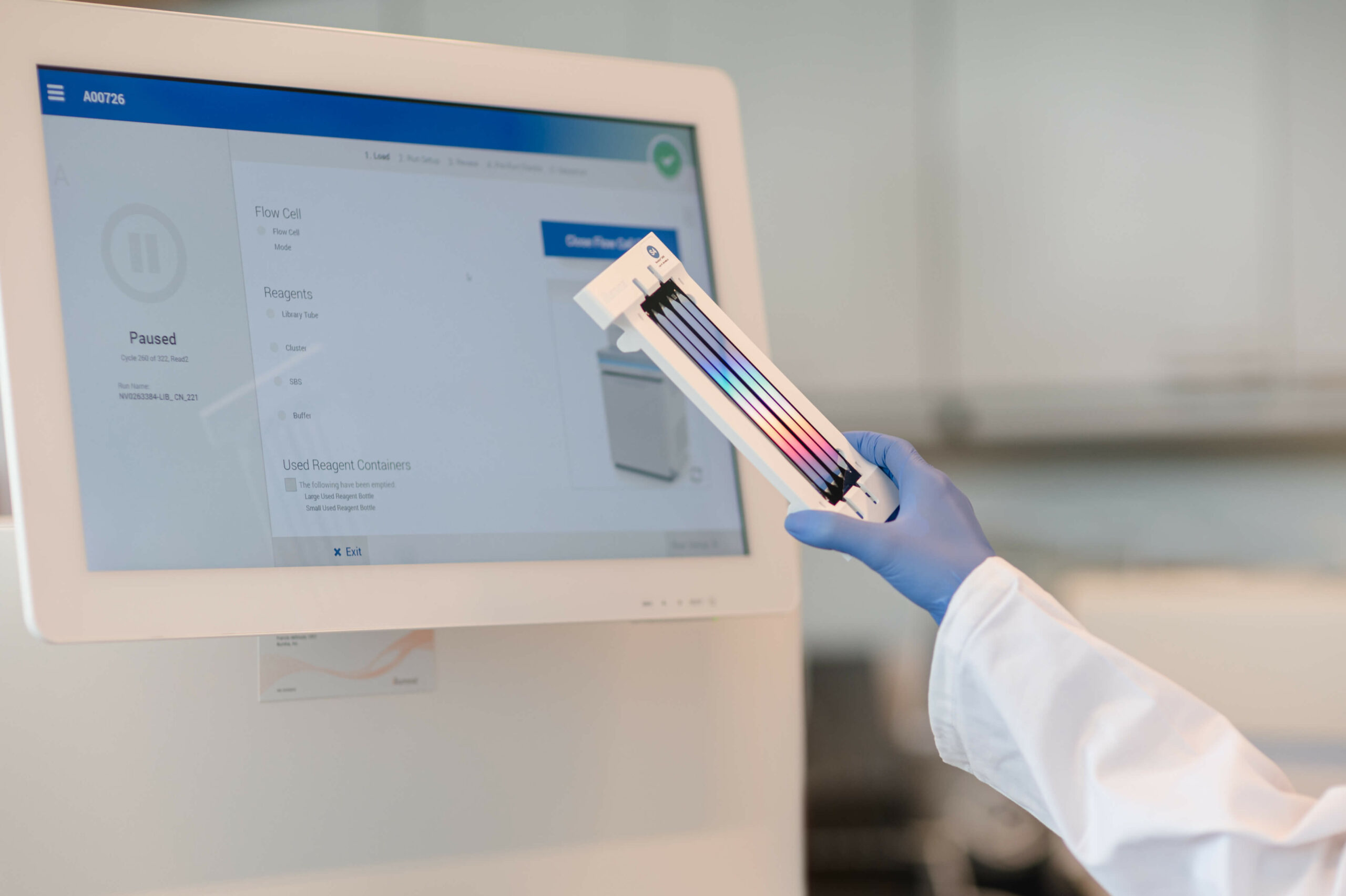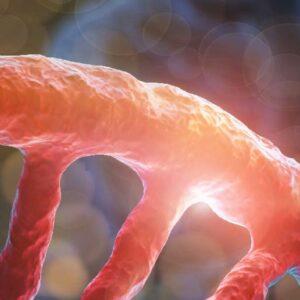OVERVIEW
Hereditary immunodeficiencies are the result of the inability of the immune system to effectively fight an infection by bacteria, viruses, fungi, and cancer cells. As a result, unusual bacterial, viral, or fungal infections or lymphomas or other cancers may develop. Primary immunodeficiencies are usually present at birth, while most become evident during infancy or childhood, others are not recognized until adulthood. There are more than 100 rare primary immunodeficiency disorders. Those are classified by affected component of the immune system: humoral immunity (involvement of B cells, a type of white blood cell that produces antibodies), cellular immunity (involvement of T cells, a type of white blood cell that helps identify and destroy foreign or abnormal cells), both humoral and cellular immunity (B cells and T cells) and phagocytes (cells that ingest and kill microorganisms). Alterations in B cells account for more than 50% of primary immunodeficiency disorders. Early identification of individuals at risk can help establish the right clinical management plan.
We offer comprehensive and syndrome-specific panels testing for immunodeficiency disorders. The test can offer a molecular genetic diagnosis of an immunodeficiency disorder that is observed or predicted in your child or a family member.

IMPORTANCE OF GETTING TESTED
If you or a family member has a risk of an immunodeficiency disorder, identifying the cause can help to take actions to improve the outcome of the disorder. Additionally, family members can be informed and encouraged to also get tested. Our genetic counsellors can provide medical advice.

You/your child has a recurrent
and severe infection

You/your child has a clinical diagnosis
for an immunodeficiency

You have a family history of
immunodeficiencies

POSSIBLE OUTCOMES OF THE TEST
A molecular genetic diagnostic report outlining the results of the sequencing analysis is provided. Changes in DNA sequences (variants) can be detrimental and lead to the development of a cardiac or aortic disorder, including asymptomatic disorders that develop later in life. We will report pathogenic and likely pathogenic variants as well as variants of unknown significance.
Pathogenic and likely pathogenic variants mean the genetic cause of the observed symptoms has been identified and may help determine the right treatment and management plan.
Variants of unknown significance means there was not enough evidence to classify the variant as either pathogenic or neutral. Annual variant reclassification and testing family members is recommended.
It is important to note that a negative result does not guarantee the absence of a disorder or that the disorder does not have a genetic cause. Genetic testing is an evolving field and may not detect all variants or there may not currently be enough evidence to classify all variants that lead to an inherited disease.
MEDICAL GENETIC COUNSELLING
We provide expert medical genetic counselling as part of a genetic testing journey. Genetic counselling is a process of communication that supports patients and their relatives before and after genetic testing. It is educational, impartial and nondirective. Prior to any genetic test, genetic counsellors will obtain a detailed family history, explain the method of testing that will be used, its risks and benefits, the limitations of the diagnosis and the implications of making a genetic diagnosis (Elliott and Friedman, 2018, Nat Rev Genet 19:735).
Upon receiving the genetic test results, genetic counselling can help the specialist physician and the patient to interpret them. They can be advised of the consequences of the results including the probability of developing the genetic disorder or passing it on to children, as well as ways to prevent, avoid or reduce these risks (Yang and Kim, 2018, Ann Lab Med 38:291). Our goal of counselling is to provide the patient with greater knowledge and thus, a better understanding of the results and the ability to make a more informed decision.

1 ml EDTA Blood
Please note: DO NOT FREEZE. Ship with a frozen ice pack. Prepare the package such that the tube is tightly packed and not loose. Avoid getting the blood tube wet from the ice pack. Place a paper towel in between ice pack and blood tube if necessary. In sub-zero temperatures, include an unfrozen ice pack in the shipping container as insulation.
15-25 working days
DNA is isolated and next generation sequencing is performed on all coding exons and conserved intronic regions. Single base pair changes, small deletions and duplications and copy number variants (CNV) are identified. Sequencing runs result in a Quality Score of >30 (accuracy >99.9%) in at least 75% of all bases with a coverage of >20-fold. CNV detection sensitivity is 76.99% and precision is 62.59% (with GC limitation between 0.4 and 0.6 per target sensitivity is 77.04% and precision is 84.10%). Variant classification is performed following ACMG guidelines (Richards et al. 2015, Genet Med 17:405; Kearney et al. 2011, Genet Med 13:680).
Next generation
sequencing (Illumina)
Twist Human Core
Exome plus Ref Seq
Spikeln
Illumina DRAGEN
Bio-IT Platform
VarSeq by
GoldenHelix
hg38, NCBI GR38
>30 (precision >99,9%)
in min. 75% of bases
99.92-99.93%; confirmation of reported SNV with Sanger
sequencing, data analysis with
SeqPilot
Richards et al. 2015, Genet Med
17:405; Ellard et al. “ACGS Best
Practice Guidelines for Variant
Classification 2020″
MaxEntScan,
SpliceSiteFinder-like,
REVEL
HGMD Professional
release, ClinVar,
gnomAD
OUR TESTS
Genes: BLNK, BTK, CD79A, CD79B, IGLL1, LRRC8A, PIK3R1
Genes: HLA-DQA1, HLA-DQB1
Genes: ADA, AK2, CD247, CD3D, CD3E, CD3G, CD40, CD40LG, CD8A, CIITA, CORO1A, DCLRE1C, DOCK8, FOXN1, IKZF1, IL2RG, IL7R, ITK, JAK3, LCK, LIG4, MAGT1, NHEJ1, ORAI1, PNP, PRKDC, PTPRC, RAG1, RAG2, RFX5, RFXANK, RFXAP, RHOH, RMRP, STAT5B, STIM1, STK4, TAP1, TAP2, TAPBP, UNC119, ZAP70
Genes: AP3B1, CLPB, CSF3R, CXCR4, DNAJC21, ELANE, G6PC3, GATA1, GATA2, GFI1, HAX1, HYOU1, JAGN1, LAMTOR2, LYST, MRTFA, RAB27A, SBDS, SLC37A4, SMARCD2, TAZ, USB1, VPS13B, VPS45, WAS, WDR1
Genes: NOD2
Genes: AICDA, CD40, CD40LG, UNG
Genes: SH2D1A
Genes: ADA, AK2, DCLRE1C, LIG4, NHEJ1, PRKDC, RAG1, RAG2
Genes: CD247, CD3D, CD3E, CORO1A, FOXN1, IL2RG, IL7R, JAK3, PTPRC
Genes: IL2RG
Genes: SBDS
Genes: WAS
Genes: BTK
LATEST ARTICLES





















